MercoPress. South Atlantic News Agency
Tag: China
-
Wednesday, August 31st 2016 - 13:54 UTC
China expects G20 summit confirms its world standing, but admits vulnerable flanks
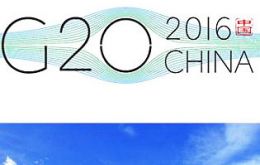
China is hoping to cement its standing as a global power when it hosts leaders from the world's biggest economies this weekend, but suspects the West and its allies will try to deny Beijing what it sees as its rightful place on the international stage. Ensuring that this does not happen will be one of President Xi Jinping's priorities, and a key mark of how successful China will judge the G20 summit to be.
-
Wednesday, August 31st 2016 - 12:34 UTC
Macri at G20 to represent the “new” Argentina and after crucial investments
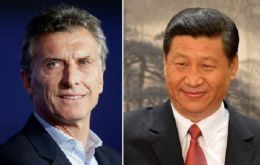
Argentine president Mauricio Macri is off to Hangzhou, China for this first G20 summit where he is expected to hold bilateral talks with the host Xi Jinping, Russia's Vladimir Putin, Germany's Merkel and probably UK prime minister Theresa May.
-
Tuesday, August 9th 2016 - 08:51 UTC
China's foreign trade further declines in July: imports down by 12.5%
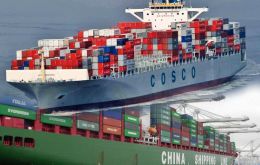
Chinese exports have seen a further decline in July, adding to concerns over the global economic outlook. Exports fell by 4.4% compared to a year earlier, which was a slight improvement over June's 4.8% drop but still worse than analysts had been expecting. And imports were also weaker than estimated, down by 12.5%.
-
Tuesday, August 2nd 2016 - 06:07 UTC
China's leading role in Argentina reviewed and confirmed by Macri
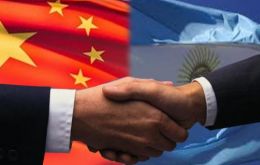
China’s role in Argentina’s foreign relations will be more balanced than during the Kirchner administrations, with a larger role played instead by the United States and European countries, the country’s ambassador to Beijing Diego Guelar said, claiming Chinese investment will have to be more competitive.
-
Tuesday, May 31st 2016 - 18:11 UTC
Argentina and China address fishing vessels poaching in the South Atlantic

The Argentine news agency Pescare reports that the repeated illegal incursion of Asian vessels in Argentina's Exclusive Economic Zone prompted the issue to be addressed during the recent meeting of the bilateral Argentina/China Subcommittee on Fisheries.
-
Saturday, May 21st 2016 - 08:46 UTC
Malcorra successfully completes negotiations with China and meets on Monday in Buenos Aires with Serra
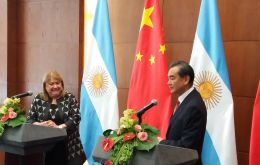
Argentina's foreign minister Susana Malcorra held another round of talks with high level Chinese officers in Beijing, as part of her official visit to China to promote trade, investment and the special strategic relation between the two countries. But also cut short her visit to other countries to be back in Buenos Aires next Monday in time to meet with her new Brazilian peer, Jose Serra to address the bilateral agenda and Mercosur among other issues.
-
Friday, May 20th 2016 - 06:48 UTC
Argentina reassures China bilateral cooperation remains a priority for the Macri administration
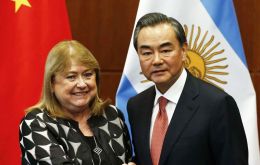
Argentina on Thursday sought to reassure China that bilateral cooperation remained a priority for its new government amid growing concerns over political changes in the South American country. After a meeting with her Chinese counterpart Wang Yi, Argentine Foreign Minister Susana Malcorra said investment projects with China would go ahead.
-
Monday, May 2nd 2016 - 08:51 UTC
With a subsidy production scheme, Argentina is back exporting oil, mainly to China
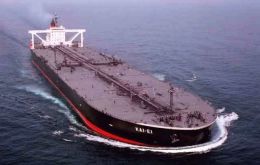
Argentine oil producers are shipping record volumes of crude this month, spurred by a new government subsidy that has also prompted state-owned oil company YPF to return to the export market for the first time in years.
-
Thursday, April 28th 2016 - 12:05 UTC
China plans to track moon spacecrafts from its station in Argentine Patagonia

In March next year, China's space and satellite tracking station in Quintuco, Argentine Patagonia will become operational, according to members from China's Space Agency, CLTC, who advanced that in June scientists will be mounting the station's antenna to explore outer space.
-
Friday, April 15th 2016 - 09:00 UTC
China's economy expanded 6.7% in the first quarter, in line with Beijing growth target

China's economy grew 6.7% in the first quarter of the year compared to the same time last year, announced the government. It is the slowest quarterly growth in the Chinese economy in seven years, but in line with expectations and China's own growth targets.
